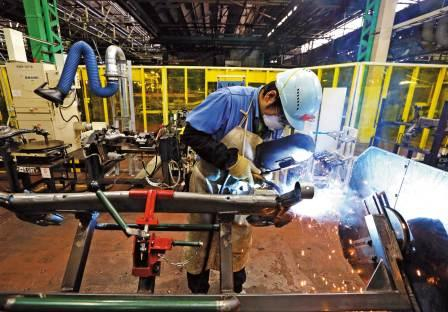
Think of a car manufacturer and chances are it might well be Japanese. From Mitsubishi to Nissan, Mazda to Toyota, Japan produces and exports many of today’s most popular brands and the cars are respected as quality works of engineering and craftsmanship. Recently, however, the industry took a knock with the recall of 6.4 million Toyota vehicles worldwide due to a variety of safety and quality issues, although the effect on the industry may not be as dire as could be expected.
According to non-profit organisation Japan Automobiles Manufacturers’ Association (Jama), the country produced 863,397 vehicles in February 2014, an increase of 7.1 per cent on the previous year. Of these vehicles, some 366,779 made their way overseas — including 48,751 that were delivered to the Middle East — and the UAE features prominently on the list of export destinations. Indeed, according to a report published by Dubai Customs at the end of 2013, Japan is the country’s leading trade partner in automobiles, accounting for a full 25 per cent of all foreign automobile trade — worth some Dh8 billion in the first half of 2013.
However, the Japanese automobile industry does not rely solely on the sale of vehicles for survival. A thriving market in automotive parts is also a major contributor to the country’s economy, with many of the world’s most renowned brands emanating from Japan. Bridgestone Tyres — perhaps one of the best known tyre companies in the world — was founded in Fukuoka, and Tokyo-based Yokohama supplies tyres to many of the world’s top racing competitors, while many automobile parts companies are also Japanese.
Bigger picture
As Toyota currently ranks as the world’s largest car manufacturer, it is understandable that a large percentage of cars in the UAE bear its logo, with some estimates claiming four out of ten cars — including Dubai’s fleet of taxis — running on UAE roads are Toyota.
Does this mean the UAE will feel any negative effects of the recall? The company is certainly doing everything it can to avoid this, although it appears to be reluctant to estimate the costs involved and little mention has been made of the potential effect on business in the UAE.
According to the Kipp Report, Suzan Kazzi, Toyota’s regional public relations representative, confirmed the company would not be able to assess the total cost of the recall and the main focus has been on the service aspect of the recall, with Toyota stressing their commitment to consumers. In a statement, the regional office said, “Toyota is working with its distributors and dealers in potentially impacted countries to promptly address this issue. By conducting this special service, Toyota Motor Corporation is ensuring that the drivers and passengers of its vehicles continue to
be safe.”
Taxing circumstances
With Jama predicting a decline of almost 10 per cent in the demand for new vehicles in 2014 — due in part to an expected dampening in consumer enthusiasm after the Japanese government increased the country’s consumption tax this month, and also to a natural balancing out of sales after a surge prior to the tax increase — does this mean the recent recall will only make things worse?
Not necessarily. Confidence in the brand name in the years following Toyota’s previous recalls was not adversely affected, according to studies conducted by North Carolina State University, and sales of GM vehicles in the US are reported to be largely unaffected by the recent recall of a number of GM models stateside. There is, therefore, some hope to be had that the industry will be able to weather the recent storm.
— GN Focus Report





